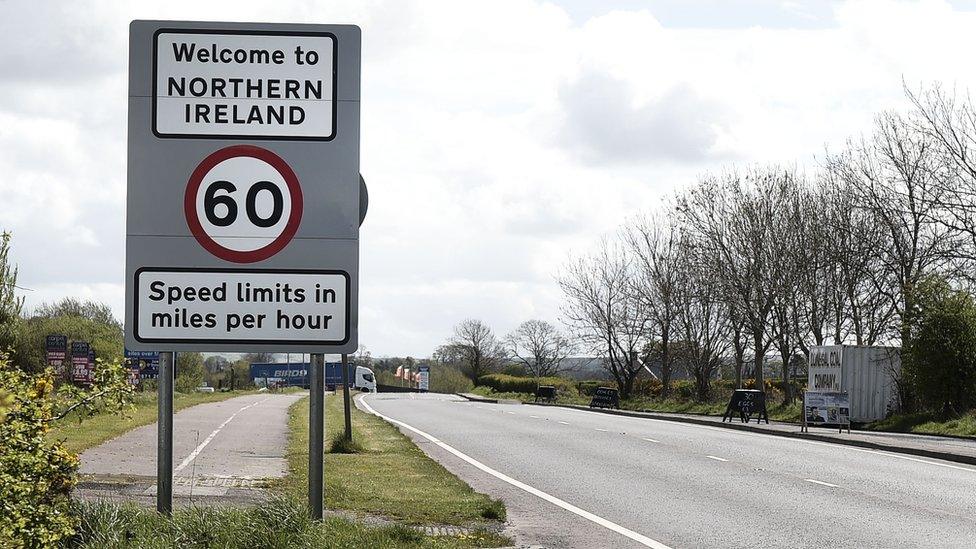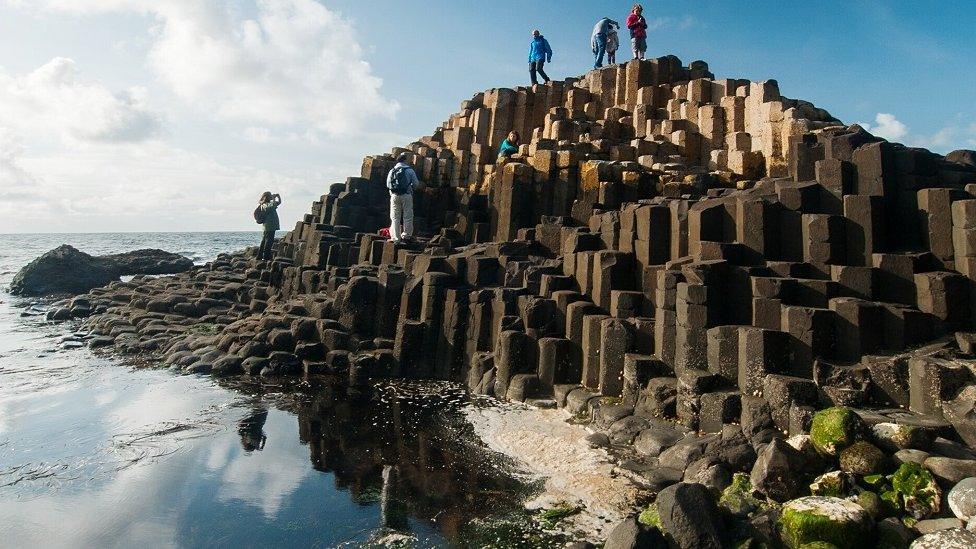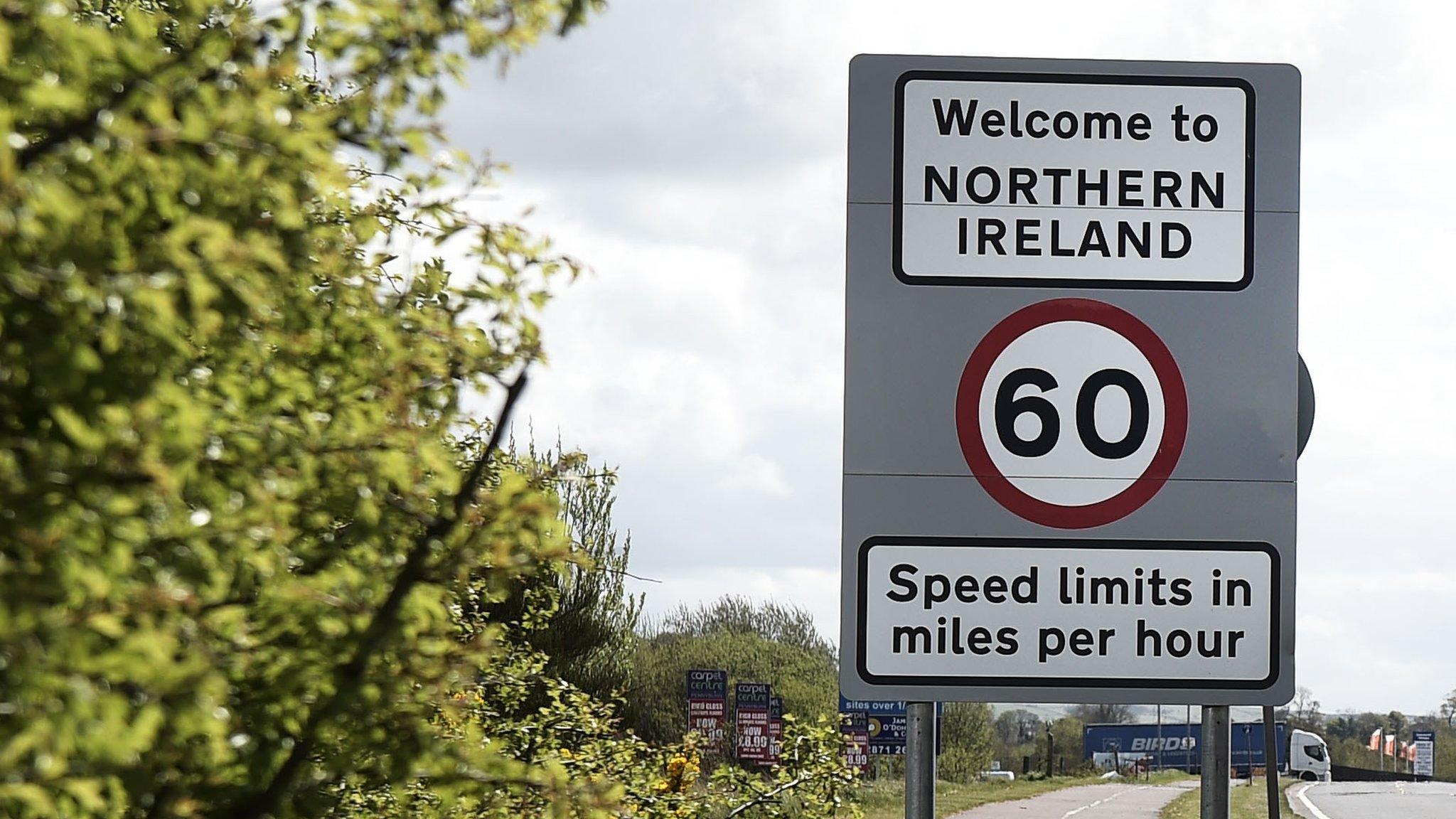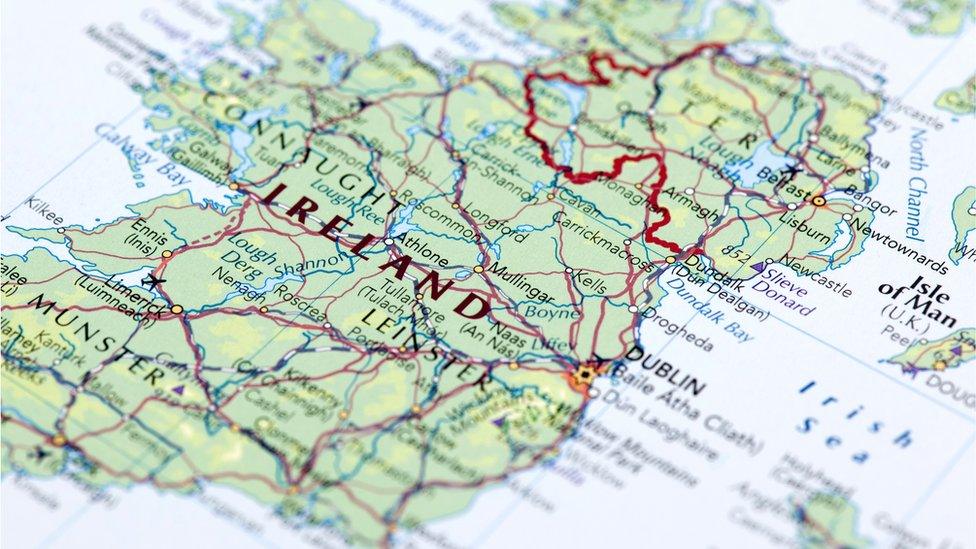Irish border: Changes made to travel authorisation scheme
- Published

Irish citizens will not require an ETA due to the long-standing migration agreement between the UK and Ireland
Legal residents of the Republic of Ireland will not need a permit to cross the border into Northern Ireland.
The news comes after the UK government announced changes to its new Electronic Travel Authorisation (ETA) system.
The ETA is a permit which non-British and non-Irish citizens will generally need before entering the UK.
That raised the prospect that a legal Irish resident, such as a Polish person, would need an ETA to briefly cross the border into NI.
But the UK says people in that situation will now be exempt.
Irish citizens will not require an ETA due to the long-standing migration agreement between the UK and Ireland, known as the Common Travel Area (CTA).
The government said: "Those who are legally resident in Ireland and from a nationality that does not usually require a visa to visit the UK, will not be required to obtain an ETA when travelling to the UK from within the Common Travel Area.
"Non-Irish residents of Ireland who are travelling to the UK from outside of the Common Travel Area will require an ETA before travel."
The government reiterated that the UK will not operate routine immigration controls on journeys from within the Common Travel Area and will have "no immigration controls whatsoever on the Ireland-Northern Ireland land border".

Industry representatives estimate Northern Ireland's international tourism spend could be at risk
Meanwhile, representatives of the tourist industry say they are dismayed that the exemption has not been extended to international visitors who arrive into Dublin and then plan to travel to Northern Ireland.
In January, the Tourism Ireland chief executive told BBC News NI that tour operators could cut Northern Ireland from their itineraries to avoid any potential complications with the ETA.
Joanne Stuart, chief executive of NI Tourism Alliance (NITA) said: "Despite extensive discussions between NITA and the Home Office, we are dismayed that the Government has refused to adapt the ETA scheme to reflect Northern Ireland's unique position as the only part of the UK with a land border.
"With over 70% of our visitors arriving via Dublin it is clear that the bureaucracy and potential costs involved in obtaining an ETA will lead to overseas visitors dropping Northern Ireland from their travel plans. This puts 25% of all tourism spend in Northern Ireland at risk."
Last month, the UK immigration minister Robert Jenrick suggested that a public information campaign would help inform tourists.
In a letter to MPs he said: "A clear communications strategy will be key to tackling any misunderstanding about the final agreed requirements for travel into Northern Ireland.
"This will include ensuring that foreign nationals visiting the island of Ireland who enter via the Republic of Ireland are aware of the ETA requirements affecting them if they wish to cross the border."
Sinn Féin MP Chris Hazzard said "outstanding problems" resulting from the UK Government's Nationality and Borders Bill "must be addressed, including its detrimental impact on all-Ireland tourism".
SDLP MP Claire Hanna said the current proposals on the ETA system would "still be disastrous for tourism in Northern Ireland and should be dropped or at least further modified".
- Published20 January 2023

- Published20 February 2023

- Published9 March 2022
